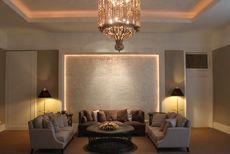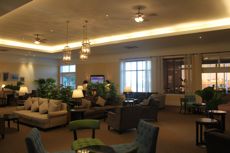The stigma against female employment in resorts presents challenges for reducing the 32 percent unemployment rate, over two-thirds of which is accounted for by women.
Sources familiar with the issue, however, claim that the stigma is “fueled by misinformation and fear”.
A recent report from Sweden’s Lund University claimed that community perceptions of resort life as ‘western’ and offensive to Islam are giving the industry a negative reputation, and are preventing women from pursuing employment in the Maldives’ most lucrative sector.
Ima* recently spoke to Minivan News about her employment in the resort sector. She was one of the first Maldivian females to be hired at a resort ten years ago, and previously lived on a local island.
“It’s very much like a family,” she said. “I know of hardly any issues with harassment from guys, people look out for each other.”
By contrast, several women working in Male’ told Minivan News that they often face sexual discrimination and harassment in the workplace. One source said there is no support against such treatment.
According to Maldivian Democratic Party (MDP) MP Eva Abdulla, “I don’t know if we have made it comfortable for women to talk to each other here.”
The thesis, “Women in Tourism: Challenges of Including Women in the Maldivian Resort Sector” was prepared by Eva Alm and Susanna Johansson during their five-month stay in the Maldives in 2010. Their findings identify “culture, religion, and women’s role in the family, the role of the family, safety, geographical spread, transportation, education and awareness” as obstacles to female employment in resorts.
Parents play a significant role in a woman’s professional future. “In the Maldives, in our religion, we are not allowed to drink or be with just any guys and things like that. So our parents are scared about that,” said one young woman quoted in the thesis.
According to the thesis, resorts are widely believed to be threatening to traditional Muslim values. At the same time, growing religious fundamentalism is projected to prevent women from participating in the local economy.
Dhivehi Rayyithunge Party (DRP) MP Rozaina Adam said a rise in fundamentalism would be an economic setback: “Instead of working, women will be lying around. That is not constructive for a growing economy and country.”
Tourism directly accounts for 30 percent of the Maldives’ GDP, and for 70 percent indirectly. Maldivian women account for a mere three percent of resort employees.
Ima said most community anxiety is due to a lack of information.
“When I go home and tell people that I work at a resort, their first perception is that I must be a good cook. But you know, they also don’t have a good idea of what my job title means. And I think that that’s a big reason behind the misperceptions in many Maldivian island communities. Many people have never been to a resort, if there was more interaction then they would understand what the resort lifestyle is. As it is, most just can’t relate to the kind of work we do here.”
One resort manager quoted in the thesis said awareness is a major challenge to promoting female employment. “Convincing the parents is difficult. They are very possessive of the girls. The parent’s perception is that they will mix with the European culture and do bad things such as drinking alcohol.”
The Maldives has one of the world’s highest divorce rates, and girls often drop out of school and get married in their late teens. Aspiration rates among youth ages 17 to 25 were recently calculated at six percent.
These statistics do not refer to the resort community.
Ima says resort life has significant benefits. “For local islanders, it can be an easy transition to resort life. Many people leave home to live or work in Male’. I think that that’s much more dangerous than working at a resort. At a resort, the lifestyle is much healthier, safer, and there is more opportunity to save.”
A source familiar with the issue told Minivan News that saving is not common for Maldivian women. She gave the example of a cleaning lady who was proud that her daughter gave her entire salary as a family contribution. “I know you want to respect your family, but how can a woman save up for herself? What option does she have for herself?” she said.
The Maldives was recently criticised for lagging behind other countries in gender equality, as defined by the Millennium Development Goals (MDGs). At the UNDP’s Democracy Day ceremony earlier this month, advisor Ferdinand von Habsburg-Lothringen warned that with only half of the Maldives’ work force engaged in the economy, “growth would not flourish.”
Several resorts have tried to accommodate social preferences by outsourcing tasks to local islands and providing daily transportation so Maldivian women do not have to live away from home.
Ima said that at the end of the day, success depends on the individual’s self confidence.
“The way you perceive colleagues and portray yourself matters for anybody, male or female. It’s about how you value yourself and the beliefs you hold. If you can stick to that, and show people who you are and how to respect you, then you can succeed,” she said.
*Name changed on request
Likes (2)Dislikes
(2)Dislikes (0)
(0) 
